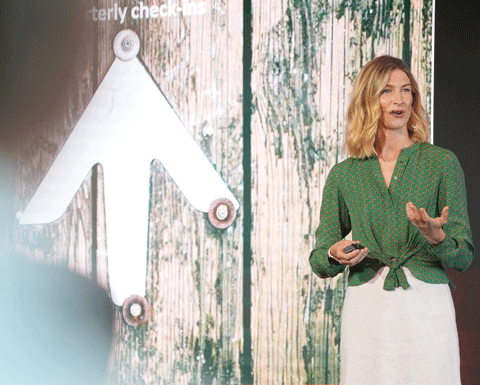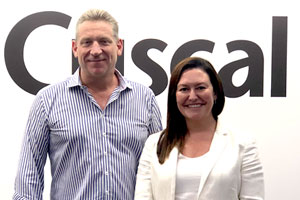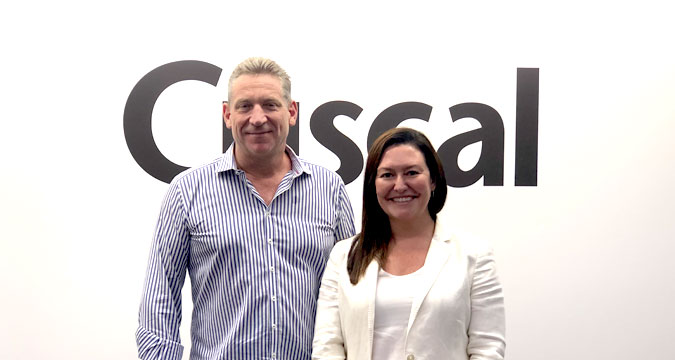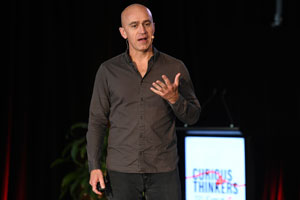
Last month, we welcomed over 200 clients and partners from across banking, fintech, and payments to Curious Thinkers 2025, our annual event.
The two-day experience invited clients and partners to step back from day-to-day pressures and explore the evolving relationship between humans and technology. Across keynotes, panels, and immersive sessions, discussions moved beyond the next trend or product to the bigger question: how can we build a digital future grounded in trust, empathy, and shared progress?
From artificial intelligence (AI) and identity to leadership and collaboration, the summit revealed four defining themes shaping the road ahead: AI with Purpose, Trust as Advantage, Human Leadership, and Collective Progress.
1. Using AI Responsibly and with Purpose
Artificial intelligence dominated the conversation as a powerful, immediate force reshaping the way we work, connect, and make decisions. The focus has shifted from what’s possible to what’s responsible: how can we harness AI’s potential while managing the risks it creates?
AI is already transforming fraud detection, compliance, and customer experience, unlocking new efficiency and insight, but its value depends on the strength of the systems behind it. This includes the integrity of data, the ethics guiding design, and the governance that ensures accountability. In other words, the race is not to move faster, but to move smarter.
Brad Daffy, Partner at KPMG, noted that while 42% of U.S. organisations already use agentic AI systems to automate workflows across customer service, software development and compliance, accountability remains a key concern.
He also raised that confidence in AI is low locally, with only 36% of Australian’s willing to trust it.
The leaders best positioned to succeed are those who balance ambition with awareness, pairing innovation with a mindset of curious caution. They recognise that sustainable progress requires both speed and control, ensuring AI enhances human decision-making rather than replacing it.
2. Rebuilding Trust Through Payments, Data, and Digital Identity
The conversations at Curious Thinkers underscored a shared reality: consumer confidence has been shaken by the industrial scale of scams, fragmented identity systems, and the erosion of digital privacy.
Sue-Lin Wong, award winning journalist, host of Scam Inc. & Asia Correspondent for the Economist, revealed that scam networks now rival the illegal drug trade, with an estimated global impact of over $500 billion.
Rebuilding that trust is now a collective priority. The path forward lies in creating a more secure, interoperable, and human-centred trust architecture that brings payments, data, and identity together. The convergence of these systems is already underway, paving the way for user-controlled digital identities and verifiable credentials that protect consumers without creating friction.
Marie Austenaa, Head of Digital Identity, Europe, Visa, pointed to the Europe’s eIDAS 2.0 framework as a model for interoperable identity systems.
The Hon. Victor Dominello projected that in Australia, a national digital ID framework could unlock $19–32 billion in annual productivity gains.
Such frameworks have the power to transform the experience of both customers and institutions, replacing cumbersome verification processes with seamless, secure authentication. They also create the foundation for a more resilient digital economy, where security and convenience can finally coexist.
For financial institutions, this shift represents both a challenge and a competitive opportunity. In a world where trust itself has become scarce, being seen as transparent, ethical, and protective of customer well-being is a brand advantage in its own right.
3. The Value of Human Leadership in a Digital World
Beneath the layers of technology and transformation, Curious Thinkers 2025 returned time and again to a single truth: progress is human.
Leaders today are operating in an era defined by complexity and constant change. There is a need for a new kind of leadership that prioritises empathy, resilience, and purpose alongside performance. The ability to connect meaningfully, inspire trust, and foster psychological safety within teams is no longer optional; it’s a strategic capability.
Dr. Adam Fraser, Founder of The Evolution Lab, highlighted the toll of digital transformation on frontline staff, including secondary traumatic stress. Fraser advised leaders to advocate for “psychological first aid” and support emotional wellbeing in the workplace.
Equally, the customer experience has emerged as the ultimate differentiator. In a world of near-instant payments and intelligent automation, it’s emotion that drives loyalty. Organisations that design around human needs, feelings, and expectations are those best placed to stand out in an increasingly commoditised market.
As the pace of change accelerates, so too does the pressure on people. The discussions highlighted a growing awareness of the human toll of digital transformation, from burnout to decision fatigue. Investing in wellbeing, emotional intelligence, and culture isn’t a “soft” initiative; it’s the bedrock of sustainable growth.
4. Driving Growth Through Collaboration
Perhaps the most urgent takeaway is that no organisation can navigate this transformation alone. The challenges facing the payments ecosystem have outgrown the capacity of individual players.
Collaboration has shifted from being a strategic option to an operational necessity. The future will be built on shared infrastructure, collective intelligence, and cross-sector partnerships that balance innovation with inclusion. This ecosystem mindset is already evident in global initiatives that blend public policy, private investment, and regulatory design — and it’s gaining momentum in Australia.
Marie Austenaa described the EU’s digital identity pilots as examples of successful public-private co-creation. Breaking down silos and aligning around common standards will be critical to the next phase of industry progress.
Looking Ahead: Turning Shared Insight into Collective Action
The future of payments will be defined not by how quickly technology evolves, but by how responsibly and collaboratively we use it.
As AI, data, and digital identity continue to reshape the landscape, the real measure of progress will be trust. Trust in systems, in institutions, and in each other. By leading with purpose, empathy, and partnership, the industry can move beyond adaptation to true transformation.
Important Information: The information in this article is current as at 20 & 21 October 2025 and is subject to change. This information is provided for general information purposes only and does not have regard to the situation or needs of any reader and must not be relied upon as advice. Before acting on this information, consider its appropriateness to your business. Cuscal Limited ABN 95 087 822 455.









